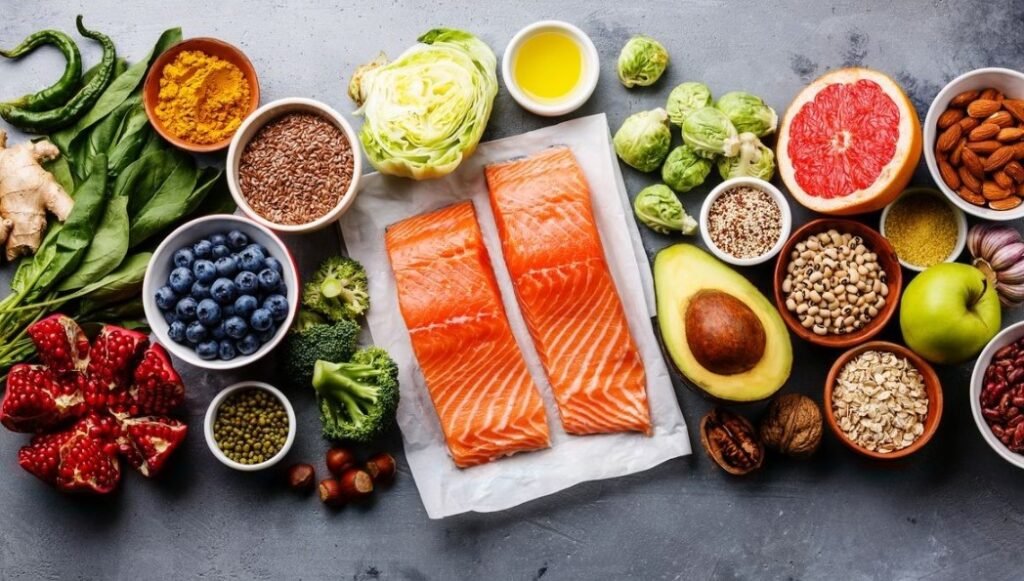Achieving peak performance in sports is not solely determined by the hours spent training or the heart and sweat poured into every workout. The silent yet powerful partner in every athlete’s journey is sports nutrition. Proper nutrition is vital for everyone engaged in physical activities, from weekend warriors to elite competitors, as it lays the foundation for sustaining energy levels, maximizing performance, and enhancing recovery. Understanding the right balance of macronutrients and micronutrients is essential for optimizing physical activity and reaching one’s full potential.
The Science of Sports Nutrition
Sports nutrition is a specialized field that focuses on how dietary practices affect athletic performance. This includes not only the types of foods consumed but also the timing and quantity relative to physical activity. A well-structured sports nutrition plan can help improve endurance, strength, and recovery while reducing the risk of injury.
Macronutrients: The Building Blocks
To tailor an adequate sports nutrition strategy, athletes must first understand the three primary macronutrients: carbohydrates, proteins, and fats. Each plays a unique role in performance and recovery.
Carbohydrates are often regarded as the primary fuel source, particularly for endurance sports. They are stored in muscles and liver as glycogen and are crucial for sustained energy during long workouts or competitions. Athletes should aim to consume a majority of their daily calories from complex carbohydrates, such as whole grains, fruits, and vegetables.
Proteins, on the other hand, are essential for muscle repair and growth. After strenuous exercise, the body needs amino acids, the building blocks of protein, to rebuild tissues damaged during training. For athletes, the recommended daily intake of protein may vary but generally falls within the range of 1.2 to 2.0 grams per kilogram of body weight, depending on the intensity of training.
Fats are another critical component of sports nutrition. While they are often misunderstood and shunned in many diets, they provide a concentrated source of energy, especially for longer-duration, lower-intensity exercise. Healthy fats can be found in nuts, seeds, avocados, and olive oil, and they support overall health, including hormone production.
Micronutrients: The Unsung Heroes
While macronutrients often take the spotlight, micronutrients—vitamins and minerals—are equally important in sports nutrition. They support various bodily functions, including energy production, bone health, and immune function. Athletes should pay particular attention to nutrients such as calcium, iron, magnesium, and vitamins A, C, D, and E. Consuming a well-rounded diet rich in fruits, vegetables, whole grains, and lean proteins can help ensure adequate micronutrient intake.
Hydration and Performance
No discussion of sports nutrition is complete without addressing hydration. Water plays a fundamental role in regulating body temperature, lubricating joints, and maintaining blood volume. Dehydration can severely impair physical performance, resulting in fatigue, decreased coordination, and increased risk of injuries.
The fluid needs of athletes can vary significantly based on factors such as body size, the climate in which they train, and the intensity of their workouts. A general guideline suggests drinking about 500-700 mL of water two to three hours before exercise, followed by another 200-300 mL in the 20-30 minutes leading up to the activity. During prolonged exercise, especially in hot weather, athletes should also consider electrolyte replacement to replenish lost minerals.
Meal Timing and Snacking
In addition to understanding the components of a balanced diet, athletes must consider the timing of their meals and snacks. Properly timed nutrition can enhance performance and facilitate recovery.
A pre-exercise meal should focus on providing easily digestible carbohydrates and some protein to fuel the body without causing gastrointestinal distress. Consuming this meal one to three hours before exercise is typically optimal.
Post-exercise nutrition is equally crucial. It’s recommended to consume a mix of carbohydrates and protein within 30 minutes of finishing exercise to promote muscle recovery and replenish glycogen stores. This can include options like a protein shake with a banana, Greek yogurt with fruit, or a turkey sandwich on whole-grain bread.
Tailoring Nutrition to Individual Needs
Athletes should remember that there is no one-size-fits-all approach to sports nutrition. Individual needs may vary based on factors such as body composition, metabolism, and specific performance goals. Consulting with a registered dietitian or a sports nutritionist can provide personalized guidance, helping athletes craft a nutrition plan that aligns with their unique circumstances.
Supplements in Sports Nutrition
While it’s best to obtain nutrients through a varied diet, some athletes may consider dietary supplements to support their performance. Common supplements in sports nutrition include whey protein, branched-chain amino acids (BCAAs), creatine, and certain vitamins. However, athletes should approach supplements with caution, ensuring they are safe, effective, and compliant with sports regulations. It’s also wise to discuss any supplementation plans with a healthcare professional or nutrition expert.
Conclusion: The Recipe for Success
Success in sports hinges not only on physical training but also on the guiding principles of sports nutrition. By prioritizing a well-balanced diet rich in macronutrients and micronutrients, properly hydrating, timing meals effectively, and tailoring approaches to individual needs, athletes can unlock the full potential of their physical capabilities. As they fuel their bodies with the right nutrients, they lay the groundwork for performance breakthroughs, allowing them to soar to new heights in their sporting pursuits. Whether competing at the amateur level or chasing professional dreams, integrating sports nutrition into their routine may very well be the catalyst for accomplishing their goals. So, to all the athletes out there, remember this recipe for success: train hard, eat well, and achieve greatness. Find a balance that works for you and stick to it. And never forget that proper nutrition is just as critical as any other aspect of your training regimen.
